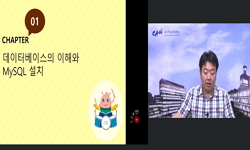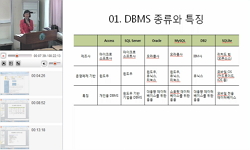데이터베이스를 「저작권법」에서 권리보호의 형태로 보호하고 있는 현 체계에 대하여 학자들의 견해에 차이가 있다. 창작물이 아님에도 「저작권법」의 보호를 받고 있는 점, 데이터베이...
http://chineseinput.net/에서 pinyin(병음)방식으로 중국어를 변환할 수 있습니다.
변환된 중국어를 복사하여 사용하시면 됩니다.
- 中文 을 입력하시려면 zhongwen을 입력하시고 space를누르시면됩니다.
- 北京 을 입력하시려면 beijing을 입력하시고 space를 누르시면 됩니다.
https://www.riss.kr/link?id=A109749907
- 저자
- 발행기관
- 학술지명
- 권호사항
-
발행연도
2025
-
작성언어
Korean
-
주제어
Database ; Data ; Web Crawling ; Copyright law ; Database creator's rights ; 데이터베이스 ; 데이터 ; 웹 크롤링 ; 저작권법 ; 데이터베이스제작자의 권리.
-
등재정보
KCI등재
-
자료형태
학술저널
-
수록면
123-146(24쪽)
- 제공처
-
0
상세조회 -
0
다운로드
부가정보
국문 초록 (Abstract)
먼저 데이터베이스는 결국 데이터가 집합된 형태이므로 「저작권법」이 아닌 데이터 법체계 내에서 보호되어야 한다. 즉 데이터와 저작권은 보호하고자 하는 가치에 차이가 있으므로 데이터베이스를 「저작권법」의 보호 대상에서 제외할 필요가 있다. 두 번째 배타적 권리를 부여하는 형태가 아닌, 침해 행위를 규제하는 형식으로 보호되어야 한다. 구체적으로는 다양한 형태의 부정경쟁행위에 대하여 유연한 보호가 가능한 「부정경쟁방지법」을 통하여 보호하는 방안을 제안할 수 있다. 마지막으로 보호 체계의 전환과 동시에, 지금의 데이터 활용의 현실에 부합하지 않는 데이터베이스의 개념 요소를 재정의해 나가야 한다. 이러한 과정을 통하여 데이터의 특성에 부합하는 유연한 데이터베이스 보호 체계를 구축해 나갈 수 있고, 데이터베이스와 데이터 법체계 간의 정합성을 확보해 나갈 수 있을 것이다.
데이터베이스를 「저작권법」에서 권리보호의 형태로 보호하고 있는 현 체계에 대하여 학자들의 견해에 차이가 있다. 창작물이 아님에도 「저작권법」의 보호를 받고 있는 점, 데이터베이스 침해 행위에 대한 규제가 아니라 배타적 권리를 부여하여 보호하고 있는 점 등이 주요 쟁점이다. 본 고에서는 데이터가 경제적 가치를 창출하는 자산으로 인식되고 있는 데이터 경제시대에서, 데이터베이스 현 보호 체계가 데이터의 활용에 미치는 영향을 알아보고, 개선 방안을 도출하고자 하였다. 이를 위해 대표적 데이터 수집 기술인 웹크롤링 관련 판례에서 데이터베이스 보호 체계가 그 권리 침해를 판단하는 데 어떠한 판단 기준을 제공하고 있는지 분석하였다. 그 결과 도출된 데이터베이스의 보호 체계 개선의 방향은 다음과 같다.
먼저 데이터베이스는 결국 데이터가 집합된 형태이므로 「저작권법」이 아닌 데이터 법체계 내에서 보호되어야 한다. 즉 데이터와 저작권은 보호하고자 하는 가치에 차이가 있으므로 데이터베이스를 「저작권법」의 보호 대상에서 제외할 필요가 있다. 두 번째 배타적 권리를 부여하는 형태가 아닌, 침해 행위를 규제하는 형식으로 보호되어야 한다. 구체적으로는 다양한 형태의 부정경쟁행위에 대하여 유연한 보호가 가능한 「부정경쟁방지법」을 통하여 보호하는 방안을 제안할 수 있다. 마지막으로 보호 체계의 전환과 동시에, 지금의 데이터 활용의 현실에 부합하지 않는 데이터베이스의 개념 요소를 재정의해 나가야 한다. 이러한 과정을 통하여 데이터의 특성에 부합하는 유연한 데이터베이스 보호 체계를 구축해 나갈 수 있고, 데이터베이스와 데이터 법체계 간의 정합성을 확보해 나갈 수 있을 것이다.
다국어 초록 (Multilingual Abstract)
First, databases, as collections of data, should be protected not under the Copyright Act but within a separate data law framework. The values protected by copyright and by data law are fundamentally different, thus necessitating the exclusion of databases from the scope of the Copyright Act.
Second, protection should be provided not by granting exclusive rights, but by regulating specific acts of infringement. In particular, it is proposed that the Unfair Competition Prevention Act be utilized to flexibly address various forms of unfair conduct. Finally, alongside this shift in the protection framework, the conceptual elements of databases must be redefined to align with current realities of data utilization. Through this process, a more flexible database protection system can be established that reflects the nature of data, thereby enhancing coherence between database protection and the broader legal framework governing data.
There are divergent academic views regarding the current system under the Copyright Act that protects databases in the form of rights. Key points of contention include the fact that databases, despite not being original works, are protected under copy...
There are divergent academic views regarding the current system under the Copyright Act that protects databases in the form of rights. Key points of contention include the fact that databases, despite not being original works, are protected under copyright law, and that the system grants exclusive rights rather than merely regulating acts of infringement. This study examines how the current database protection system affects data utilization in the era of the data economy, where data is recognized as an asset generating economic value, and seeks to propose improvement measures. To this end, the study analyzes how the database protection framework provides criteria for determining rights infringement in case law related to web crawling, a representative technology for data collection. The main findings and proposed directions for reform are as follows.
First, databases, as collections of data, should be protected not under the Copyright Act but within a separate data law framework. The values protected by copyright and by data law are fundamentally different, thus necessitating the exclusion of databases from the scope of the Copyright Act.
Second, protection should be provided not by granting exclusive rights, but by regulating specific acts of infringement. In particular, it is proposed that the Unfair Competition Prevention Act be utilized to flexibly address various forms of unfair conduct. Finally, alongside this shift in the protection framework, the conceptual elements of databases must be redefined to align with current realities of data utilization. Through this process, a more flexible database protection system can be established that reflects the nature of data, thereby enhancing coherence between database protection and the broader legal framework governing data.
동일학술지(권/호) 다른 논문
-
인격(Persona), 존엄(Dignitas)에 대한 계보 고찰
- 사단법인 한국법이론실무학회
- 한동일
- 2025
- KCI등재
-
청년 주거권 보호를 위한 대학 내 부동산 기초교육 도입 방안
- 사단법인 한국법이론실무학회
- 조재진
- 2025
- KCI등재
-
- 사단법인 한국법이론실무학회
- 이진홍
- 2025
- KCI등재
-
- 사단법인 한국법이론실무학회
- 신옥식
- 2025
- KCI등재





 DBpia
DBpia






